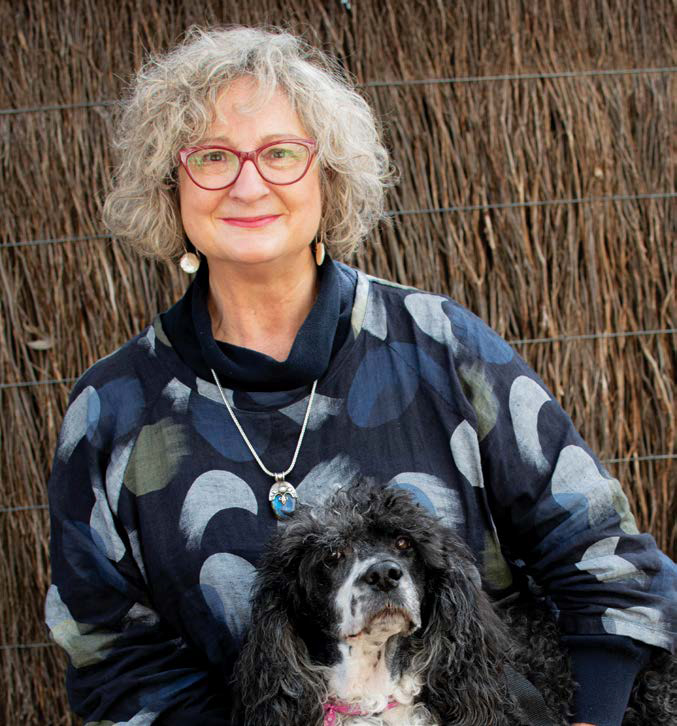The selfless nature of many veterinarians is contributing to the sector’s mental health crisis, a former Naracoorte vet has told an SA Parliament committee.
Dr Adele Feakes says business sustainability and profit routinely take a back seat to a vet’s altruism, placing additional pressure on individuals to survive and thrive in the industry.
“Like many other ‘helping’ professions, we have an enduring tendency to enact selfless behaviours promoting others’ welfare,” Dr Feakes told the Joint Committee on Mental Health and Wellbeing of Veterinarians in SA.
“For us, it’s mostly about the animals, but many times we are doing things to support the humans’ welfare, because the pet is so important to them, or their cow or their sheep mob, particularly in a drought.”
Dr Feakes was a practice owner and veterinarian in Naracoorte and Penola from 1985 to 2009, and has continued in the industry since, including via one of her current roles, as a senior lecturer in veterinary practice management with Adelaide University.
Dr Feakes recently presented her views on the sector to the SA Parliament committee, which is chaired by independent MLC and former veterinarian Dr Sarah Game, and is exploring the mental health scourge faced by veterinarians and their staff, including an elevated suicide rate.
Dr Feakes has undertaken research on the business model for veterinary science, completing a PHD on the topic.
“My research motivation was originally driven by the suicide of a colleague due to financial stress and complaints at our reunions about the lack of business skills,” she told the committee. I think we have a skills shortage and we have an altruism problem. We have tensions between animal welfare and practice sustainability.”
Dr Feakes noted “a hell of a lot of pressure on the veterinary staff to consider client pushback”.
“Even though my research stemmed from the financial stress of a colleague who suicided, we now have a whole lot of other stressors that tip the balance and lead to ill health and loss of life, loss of productivity and burnout,” she said.
“It is known that businesses founded or owned by socially motivated individuals… will actually be less viable.”
Dr Feakes who described vet practices as “socially purposed businesses” said vets operating practices were often under-prepared for the financial management side of their profession.
“It’s much more satisfying (for vets) to go and fix an animal than pay attention to the books,” she said.
“We share, care, help, express empathy and do stuff for people and their animals often at a physical, mental or financial cost to ourselves.”
During the session, Dr Game asked Dr Feakes whether universities could help teach student veterinarians to “protect themselves” from their inherent altruism.
“We talk about being willing to charge (for services) and obviously have self-worth in that way for business, but perhaps those individuals need to learn to be a little bit less altruistic and have a little bit more self-care,” Dr Game said.
“And perhaps this is something that needs to enter the university realm?” In summing up her presentation, Dr Feakes said altruism “has implications for veterinarians and vet businesses”.
“We need to avoid regular altruism because it’s not sustainable as a professional trait,” she said. “It wears our staff out, whether they are nurses or the vets.
“(However), we need to practice empathic care and compassionate care skills.”
Dr Game said the suicide rate in vets was about four times the rate of the broader adult population, with one vet being lost to suicide every 12 weeks, and scores of young vets walking away from the profession.
“The situation is simply unacceptable and this crisis is why I established this committee,” she said.
“We’re tackling the tragic and alarming spate of suicides and mental health trauma affecting the sector and we’ve been hearing from witnesses on a regular basis throughout 2025, including from Dr Feakes.”
Dr Game said an AVA (Australian Veterinary Association) survey showed 88 per cent of veterinarians attribute poor mental health to a toxic work environment, due to customer abuse and unrealistic expectations, while the survey also revealed that chronic understaffing was causing 58 per cent of vets to experience fatigue, exacerbating mental health issues.
This article appeared in The Naracoorte News, 6 August 2025.



